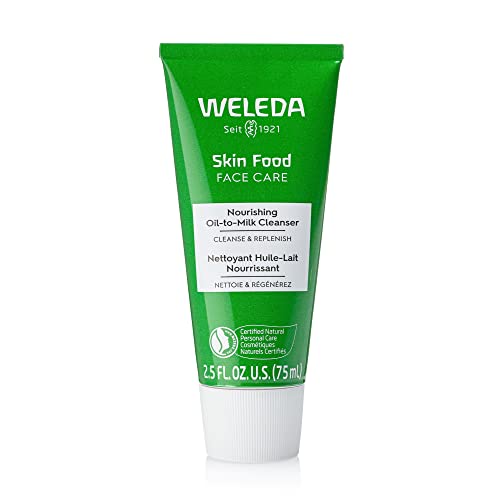Let’s get into the world of sunflower oil and its amazing benefits for the skin. Sunflower oil, derived from sunflower seeds, has been used for centuries in skincare routines due to its numerous advantages. We will explore the benefits, different types, how to choose the best sunflower oil, potential side effects, and answer frequently asked questions.
What is Sunflower Oil?
Sunflower oil is a natural oil extracted from sunflower seeds. It is rich in essential fatty acids, vitamins, and antioxidants, making it highly beneficial for the skin. Sunflower oil is commonly used as a carrier oil in skincare products due to its nourishing and moisturizing properties. It is lightweight and easily absorbed, making it suitable for various skin types.
More from Glowing Gorgeous: Find out here the Best Silicone-Free Moisturizers And Why Do You Care
Sunflower Oil for Skin: An Overview
Sunflower oil offers a range of benefits for the skin, making it a popular ingredient in skincare routines. It contains a high concentration of vitamin E, which is known for its antioxidant properties and ability to protect the skin from free radicals. Additionally, sunflower oil is rich in oleic acid, linoleic acid, and other essential fatty acids that help maintain the skin’s natural barrier and keep it hydrated.
Benefits of Sunflower Oil for Skin
Sunflower oil provides numerous benefits for the skin, some of which you might not be aware of.
Moisturizes and Nourishes the Skin
Sunflower oil is an excellent moisturizer, thanks to its emollient properties. It helps lock in moisture, keeping the skin hydrated and supple. The fatty acids present in sunflower oil aid in replenishing the skin’s natural lipid barrier, preventing moisture loss and maintaining a healthy complexion. Regular use of sunflower oil can leave your skin feeling soft, smooth, and rejuvenated.
Protects Against Environmental Damage
The antioxidant properties of sunflower oil play a crucial role in protecting the skin against environmental damage. It helps neutralize free radicals that are generated by factors like pollution, UV radiation, and stress. These free radicals can cause premature aging, wrinkles, and dullness. By incorporating sunflower oil into your skincare routine, you can help combat these harmful effects and maintain youthful-looking skin.
Soothes and Calms Irritated Skin
If you have sensitive or irritated skin, sunflower oil can be a soothing and calming solution. It has anti-inflammatory properties that can help reduce redness, inflammation, and itchiness. Sunflower oil is gentle on the skin, making it suitable for individuals with conditions like eczema or rosacea. Applying sunflower oil topically can provide relief and promote a healthier complexion.
Enhances Skin Barrier Function
Maintaining a strong and healthy skin barrier is essential for overall skin health. Sunflower oil is rich in essential fatty acids, particularly linoleic acid, which is crucial for a well-functioning skin barrier. Regular application of sunflower oil can improve the skin’s ability to retain moisture, prevent water loss, and protect against external aggressors. This, in turn, can lead to smoother, plumper, and more resilient skin.
Improves the Appearance of Scars and Uneven Skin Tone
Sunflower oil’s ability to promote cell regeneration can aid in reducing the appearance of scars and uneven skin tone. The vitamin E and fatty acids in sunflower oil help promote the growth of new, healthy skin cells, which can gradually fade scars and dark spots over time. By incorporating sunflower oil into your skincare routine, you may notice a more even and radiant complexion.
Sunflower Oil for Acne
Acne is a common skin concern, and finding suitable skincare products is crucial in managing breakouts. Sunflower oil can be beneficial for acne-prone skin due to its non-comedogenic nature and ability to regulate sebum production. Here’s how sunflower oil can help:
Non-comedogenic:
Sunflower oil has a low comedogenic rating, meaning it is unlikely to clog pores and contribute to acne formation. It is a lightweight oil that absorbs easily into the skin without leaving a greasy residue.
Regulates sebum production:
Contrary to popular belief, oily skin can benefit from using oils like sunflower oil. It helps balance sebum production, reducing excessive oiliness that can contribute to acne breakouts. By regulating sebum levels, sunflower oil can promote a healthier complexion and prevent future breakouts.
More from Glowing Gorgeous: Find out here Hyram’s Recommended Face Sunscreens For The Summer
It’s important to note that while sunflower oil can be beneficial for acne-prone skin, individual results may vary. If you have severe acne or are unsure about using sunflower oil, better check with a dermatologist.
Sunflower Oil as a Carrier Oil
Sunflower oil serves as an excellent carrier oil, allowing you to enjoy the benefits of other skincare ingredients. Here’s why sunflower oil is often used as a carrier oil:
Versatility:
Sunflower oil blends well with a wide range of essential oils and other active ingredients, making it a versatile carrier oil in DIY skincare formulations.
Gentle and nourishing:
As a carrier oil, sunflower oil provides a gentle base for potent ingredients. It helps deliver nutrients deep into the skin, ensuring optimal absorption and nourishment.
Non-irritating:
Sunflower oil is well-tolerated by most skin types, including sensitive skin. Its non-irritating nature makes it a suitable choice for diluting essential oils and reducing their potential skin sensitivity.
Different Types of Sunflower Oil
Not all sunflower oils are created equal. It’s essential to be aware of the different types available to choose the most suitable one for your skin. Let’s explore the two primary types of sunflower oil:
Refined Sunflower Oil
Refined sunflower oil undergoes a process of refining, which involves removing impurities and refining the oil to make it suitable for consumption and cosmetic use. It has a neutral scent and color, making it a versatile option for skincare formulations. Refined sunflower oil is often used as a base oil in commercial skincare products.
Cold-Pressed Sunflower Oil
Cold-pressed sunflower oil is extracted by pressing sunflower seeds without the use of heat. This method helps retain the oil’s natural properties, including vitamins and antioxidants. Cold-pressed sunflower oil is considered a more natural and nutrient-rich option, making it a preferred choice for those seeking maximum skincare benefits.
Both refined and cold-pressed sunflower oils can be used for skincare purposes. However, if you prefer a more natural and unprocessed option, cold-pressed sunflower oil may be the better choice.
Choosing the Best Sunflower Oil
When it comes to selecting the best sunflower oil for your skin, there are a few factors to consider. Here’s what you should keep in mind:
Quality and Purity
Opt for high-quality sunflower oil that is free from additives, preservatives, and synthetic fragrances. Look for oils that are labeled as pure, organic, and cold-pressed to ensure you’re getting the most benefits for your skin.
Packaging
Choose sunflower oil that comes in dark glass bottles or opaque containers. This helps protect the oil from light exposure, which can degrade its quality and potency over time.
Source and Sustainability
Consider sunflower oil brands that prioritize sustainability and source their seeds from trusted suppliers. Organic and ethically sourced sunflower oil can provide peace of mind and ensure a more environmentally friendly choice.
Nutrition facts for different sunflower oils
This summarizes the main differences in fatty acid composition between 1-tablespoon (15-mL) servings of the three types of sunflower oils used in home cooking:
| Fatty Acid | High Linoleic Sunflower Oil | Mid-Oleic (NuSun) Sunflower Oil | High Oleic Sunflower Oil |
|---|---|---|---|
| Linoleic Acid (omega-6) | High | Moderate | Low |
| Oleic Acid (omega-9) | Low | High | High |
| Palmitic Acid (saturated) | Moderate | Moderate | Low |
| Stearic Acid (saturated) | Moderate | Low | Low |
In high linoleic sunflower oil, the primary fatty acid is linoleic acid (omega-6), making it high in polyunsaturated fats. It has a moderate amount of palmitic and stearic acids.
In mid-oleic (NuSun) sunflower oil, the fatty acid composition is more balanced. It has moderate levels of linoleic acid and higher levels of oleic acid (omega-9), which is a monounsaturated fat. It also has moderate amounts of palmitic and stearic acids.
In high oleic sunflower oil, the primary fatty acid is oleic acid (omega-9), making it high in monounsaturated fats. It has low levels of linoleic acid, palmitic acid, and stearic acid.
These differences in fatty acid composition can affect the oil’s stability, smoke point, and nutritional profile. High linoleic sunflower oil is suitable for low-heat cooking and cold applications, while high oleic sunflower oil has a higher smoke point and is more stable for high-heat cooking.
How to Use Sunflower Oil in Your Skin Care Routine
Incorporating sunflower oil into your daily skin care routine is simple and can provide numerous benefits for your skin. Here are some effective ways to use sunflower oil:
Facial Moisturizer:
After cleansing your face, apply a small amount of sunflower oil onto damp skin. Gently massage it in upward motions until fully absorbed. Sunflower oil acts as a nourishing and hydrating moisturizer, leaving your skin soft and supple.
Dermalogica Phyto Replenish Body Oil Lightweight Moisturizer
Dermalogica Phyto Replenish Body Oil Lightweight Moisturizer is an excellent choice for moisturizing your skin, thanks to its inclusion of sunflower seed oil. This lightweight moisturizer is specially formulated to deliver hydration and nourishment without feeling greasy or heavy. Sunflower seed oil, a key ingredient, provides essential fatty acids that help replenish and strengthen the skin’s natural barrier. It also contains antioxidants that protect against environmental stressors, promoting a healthy and youthful appearance. With its fast-absorbing formula and the benefits of sunflower seed oil, Dermalogica Phyto Replenish Body Oil Lightweight Moisturizer leaves your skin feeling soft, smooth, and revitalized.
Makeup Remover
Sunflower oil is an excellent natural makeup remover, especially for stubborn waterproof products. Apply a few drops of sunflower oil to a cotton pad and gently swipe it over your face, focusing on areas with makeup. Wipe away any residue and rinse your face with lukewarm water. Sunflower oil effectively dissolves makeup while hydrating the skin.
Weleda Skin Food Face Care Nourishing Oil-to-Milk Cleanser
Weleda Skin Food Face Care Nourishing Oil-to-Milk Cleanser is an exceptional cleanser that incorporates the benefits of sunflower seed oil, making it a great choice for your skincare routine. With a unique oil-to-milk formula, it effectively cleanses the skin while providing nourishment and hydration.
The inclusion of sunflower seed oil brings numerous advantages. Sunflower seed oil is rich in essential fatty acids, including linoleic acid, which helps maintain the skin’s natural moisture barrier and promotes a healthy complexion. It possesses antioxidant properties, shielding the skin from environmental stressors and supporting its overall vitality.
Body Oil:
Extend the benefits of sunflower oil beyond your face by using it as a body oil. Apply sunflower oil to damp skin after showering to lock in moisture and keep your skin smooth and hydrated throughout the day. You can also mix sunflower oil with your favorite body lotion for added nourishment.
Caudalie Divine Oil
Caudalie Divine Oil is a luxurious multi-purpose dry oil that combines sunflower oil with other nourishing ingredients. It can be used on the face, body, and hair to hydrate, soften, and enhance radiance. This premium beauty product has a delightful fragrance and absorbs quickly without leaving a greasy residue.
FarmHouse Fresh Clementine Body Oil
FarmHouse Fresh Clementine Body Oil is an exceptional body oil that incorporates sunflower seed oil, making it an excellent choice for nourishing and hydrating your skin. This invigorating body oil combines the refreshing scent of clementines with the skin-loving properties of sunflower seed oil. Sunflower seed oil is rich in essential fatty acids and vitamins, providing deep hydration and promoting a healthy skin barrier. It absorbs quickly, leaving your skin feeling silky smooth and moisturized without any greasy residue. The delightful fragrance and skin-nourishing benefits of sunflower seed oil make FarmHouse Fresh Clementine Body Oil a fantastic option for keeping your skin supple, glowing, and irresistibly scented.
Scalp Treatment:
Sunflower oil can be beneficial for your scalp health. Warm a small amount of sunflower oil and gently massage it into your scalp. Leave it on for about 15 minutes before shampooing your hair. This can help nourish the scalp, reduce dryness, and promote healthy hair growth.
DIY Face Mask:
You can create a DIY face mask by combining sunflower oil with other natural ingredients. For example, mix 1 tablespoon of sunflower oil with 1 tablespoon of honey and 1 teaspoon of lemon juice. Apply the mixture to your face, leave it on for 10-15 minutes, and then rinse off with warm water. This mask can help hydrate, brighten, and nourish your skin.
Potential Side Effects
While sunflower oil is generally safe for topical use, it’s essential to be aware of potential side effects, especially if you have sensitive skin or specific allergies. Here are a few considerations:
Allergic Reactions
Some individuals may have allergies to sunflower seeds or other ingredients present in sunflower oil. Perform a patch test on a small area of your skin before applying sunflower oil generously.
Skin Irritation:
Although rare, some individuals may experience skin irritation or redness when using sunflower oil. If you notice any adverse reactions, discontinue use and consult a dermatologist.
Acne Breakouts:
While sunflower oil is non-comedogenic, it can still cause breakouts in some individuals. If you have acne-prone skin, monitor your skin’s response when introducing sunflower oil into your skincare routine.
Frequently Asked Questions
FAQ 1: Can sunflower oil clog pores?
No, sunflower oil is non-comedogenic, meaning it is unlikely to clog pores. It has a low comedogenic rating, making it suitable for individuals with acne-prone or oily skin.
FAQ 2: Is sunflower oil comedogenic?
No, sunflower oil is non-comedogenic, meaning it does not contribute to the formation of comedones (clogged pores). It is a lightweight oil that absorbs easily into the skin.
FAQ 3: Can I use sunflower oil on oily skin?
Yes, sunflower oil can be used on oily skin. It helps balance sebum production and provides lightweight hydration without leaving a greasy residue. However, individual results may vary, so it’s best to patch test and monitor your skin’s response.
FAQ 4: Can sunflower oil be used for hair?
Yes, sunflower oil can be beneficial for hair as well. It helps nourish and moisturize the scalp, promotes hair health, and adds shine. You can apply a small amount of sunflower oil to your hair, focusing on the ends, or incorporate it into homemade hair masks and treatments.
FAQ 5: Is sunflower oil safe for sensitive skin?
Sunflower oil is generally safe for sensitive skin. Its gentle nature and anti-inflammatory properties make it suitable for individuals with sensitive or irritated skin. However, it’s always recommended to perform a patch test before using it extensively.
Bottom Line
Sunflower oil is a versatile and beneficial ingredient for skincare. Its moisturizing, nourishing, and protective properties make it a valuable addition to your beauty routine. Whether you’re looking to hydrate your skin, soothe irritation, or improve the appearance of scars, sunflower oil can be a natural and effective solution. Remember to choose high-quality oils, consider your skin type, and patch test before incorporating sunflower oil into your skincare regimen.


 Dermalogica Phyto Replenish Body Oil (4.2 Fl Oz) Lightweight Moisturizer with...
Dermalogica Phyto Replenish Body Oil (4.2 Fl Oz) Lightweight Moisturizer with... Weleda Skin Food Face Care Nourishing Oil-to-Milk Cleanser, 2.5 Fluid Ounce,...
Weleda Skin Food Face Care Nourishing Oil-to-Milk Cleanser, 2.5 Fluid Ounce,... Caudalie Divine Body, Hair And Face Oil, 3.4 Fl Oz
Caudalie Divine Body, Hair And Face Oil, 3.4 Fl Oz FarmHouse Fresh Clementine Body Oil, Orange, 4 Fl Oz (Pack of 1)
FarmHouse Fresh Clementine Body Oil, Orange, 4 Fl Oz (Pack of 1)
Comments